
Masanori Murakami tosses the ceremonial first pitch before a Tokyo Yakult Swallows-Yokohama DeNA BayStars game at Jingu Stadium on July 21, 2024. (©SANKEI)
The timing was perfect for Masanori Murakami to be the guest of honor at a Foreign Correspondents' Club of Japan press luncheon on Monday, September 2.
A day earlier was the 60th anniversary of his MLB debut with the San Francisco Giants. And like the world around us, baseball has changed rapidly in the years since Murakami stepped on the mound in the eighth inning at Shea Stadium in New York on September 1, 1964. MLB's first Japanese pitcher tossed a scoreless inning and struck out two in the Giants' 4-1 loss to the New York Mets.
Murakami made 53 more pitching appearances for San Francisco in the 1964 and '65 seasons, recording a 5-1 overall record and a 3.43 ERA with 100 strikeouts in 89 innings. He then returned to Japan, playing the rest of his career before retiring in 1982.
More than 40 years after his final game, Murakami acknowledged he felt regret about not playing for a few more years in the majors. He also told the FCCJ audience that he wishes that then-NPB commissioner Yushi Uchimura had found a way for Japanese players to have a permanent presence in MLB. (In those days, a working agreement didn't exist between pro baseball in the United States and Japan.)
Nobody knew at the time that the first Japanese MLB player would be the last until Hideo Nomo "retired" from the Kintetsu Buffaloes and joined the Los Angeles Dodgers in 1995, ushering in a new era of baseball. The floodgates then opened for Japanese players to follow.
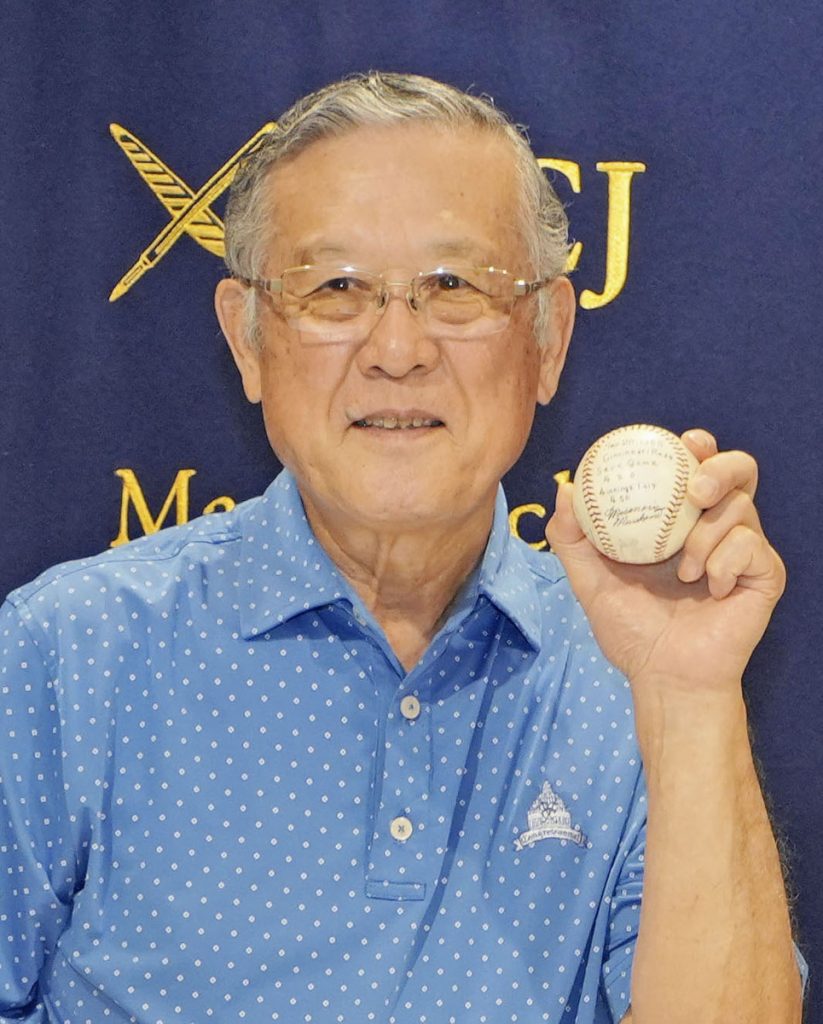
Masanori Murakami: The Importance of a Promise
Nearly four months after his 80th birthday on May 6, Murakami regaled guests at the afternoon luncheon with insightful stories about his life, seminal moments in his development as a player and his baseball career.
He also told the crowd that it was important to him to keep a promise to Nankai Hawks manager Kazuto Tsuruoka, his first pro skipper. It was a promise made before he ever pitched a game for San Francisco or the club's California League affiliate (Fresno Giants).
"I came back to Japan because Mr Tsuruoka actually kept a promise with me to send me over to America," Murakami said on Monday. "And I actually kept the promise with him to come back to Japan after a certain time."
Speaking of the Giants organization, who initially had a three-month deal in place for Murakami, he added that "they were kind enough to extend my stay over to two years and I was thankful for that."
In 1965, Murakami demonstrated again and again in his 45 appearances that he had the skills to pitch in the majors. Most notably, he fanned 85 batters in 74⅓ innings and allowed only 57 hits.
Looking back, Murakami believes that if had pitched for the Giants in 1966 he probably would have extended his MLB career for "five or six more years because I was getting better and better towards the end of my American baseball career."
To this day, he has bittersweet feelings on the matter.
"It was unfortunate that I had to come back, but at the same time I was able to keep a good promise with Mr Tsuruoka," Murakami admitted. "And I'm very proud that I didn't break any promises with him."
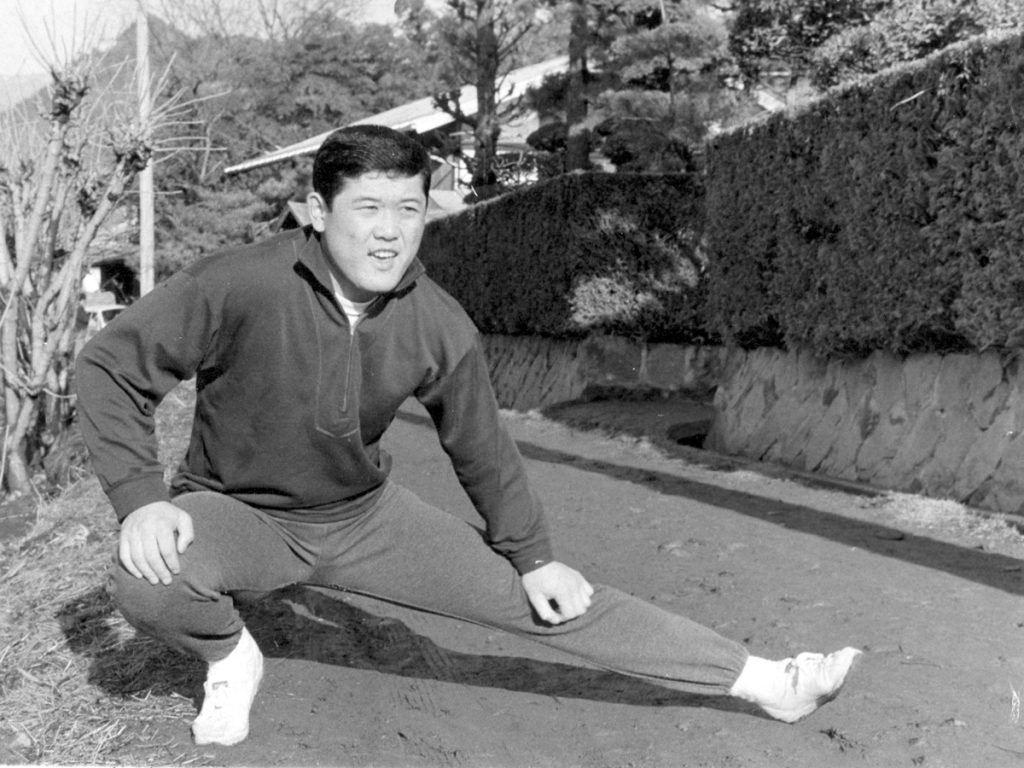
Childhood Memories
Recalling his childhood days in Otsuki, Yamanashi Prefecture, Masanori Murakami described his father as a strict disciplinarian, as someone who bore the emotional scars of being a Soviet prisoner of war in Manchukuo (now a part of China) during World War II.
The elder Murakami wanted his son to become a doctor or surgeon.
But the father also allowed his son to enjoy childhood. He gave him permission to play softball, starting when he was a fourth-year elementary school student and continuing until he graduated from the school two years later.
Murakami's earliest days as a softball player were without a vital piece of equipment. "I wanted to play, but I had no glove at all," he said.
Before one of his father's business trips, Murakami discussed this less-than-ideal situation with his older sister, seeking her advice on how he should request a glove.
What was his sister's advice?
"Maybe you should write a letter to him and leave it at his pillow side while he's sleeping," he remembered her saying.
"So I actually wrote that letter to ask for a glove ― I'm a left-hander, so [it was] the glove that goes on my right hand," he reported more than 70 years later.
That letter was placed next to his father's pillow that night.
After Murakami's father returned from his business trip the next day, he received a new glove. He recalled that moment as a joyful one.
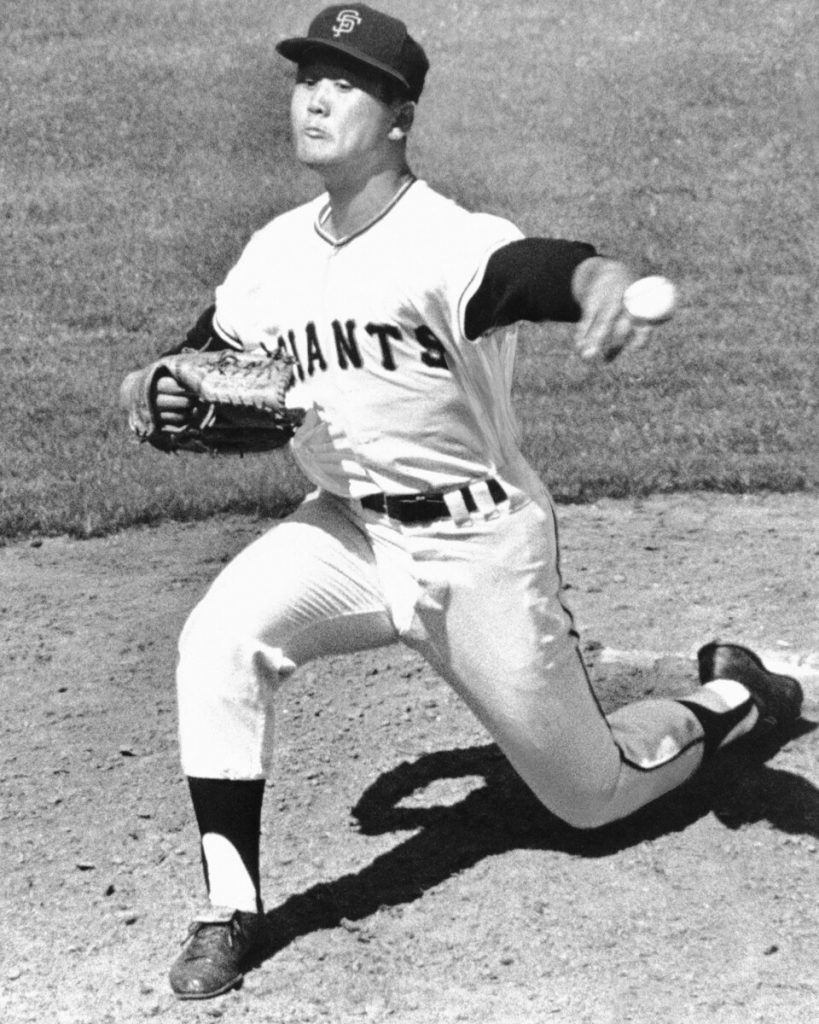
Quitting Judo, Starting to Play Baseball
As a junior-high school student, Murakami quit practicing judo, which his father had pushed him to pursue, and without notifying him he began playing on the school's baseball club. He feared his father would be angry at him.
But a conversation between the baseball team's manager and Murakami's father defused a potentially volatile situation.
"He promised my father that I would study as hard as I play baseball," Murakami recalled, emphasizing the focus on academics was important to his father.
Success followed for Murakami. His talent was noticed while competing in regional events in Yamanashi Prefecture, which earned him a tryout for the baseball team at Hosei University Daini Senior High School in Kanagawa Prefecture. Injury and illness impacted his high school career, but his ability as a pitcher was on display.
In November 1962, Tsuruoka, the manager of the Hawks, visited Murakami in his hometown to scout him.
Tsuruoka was persuasive in his parting remarks to Murakami that day, telling him, "If you come to Nankai and play for us, I will make sure that we send you over to the United States."
Overseas trips were not common in those days, Murakami noted, recalling the expensive price of a plane ticket was nearly ¥300,000 JPY (nearly $2,100 USD with the current exchange rate on September 5, 2024) for an economy class seat then. But Murakami loved the American TV Western Rawhide and dreamed of traveling to the United States.
"That really changed my mind and I turned pro because of that," he said.
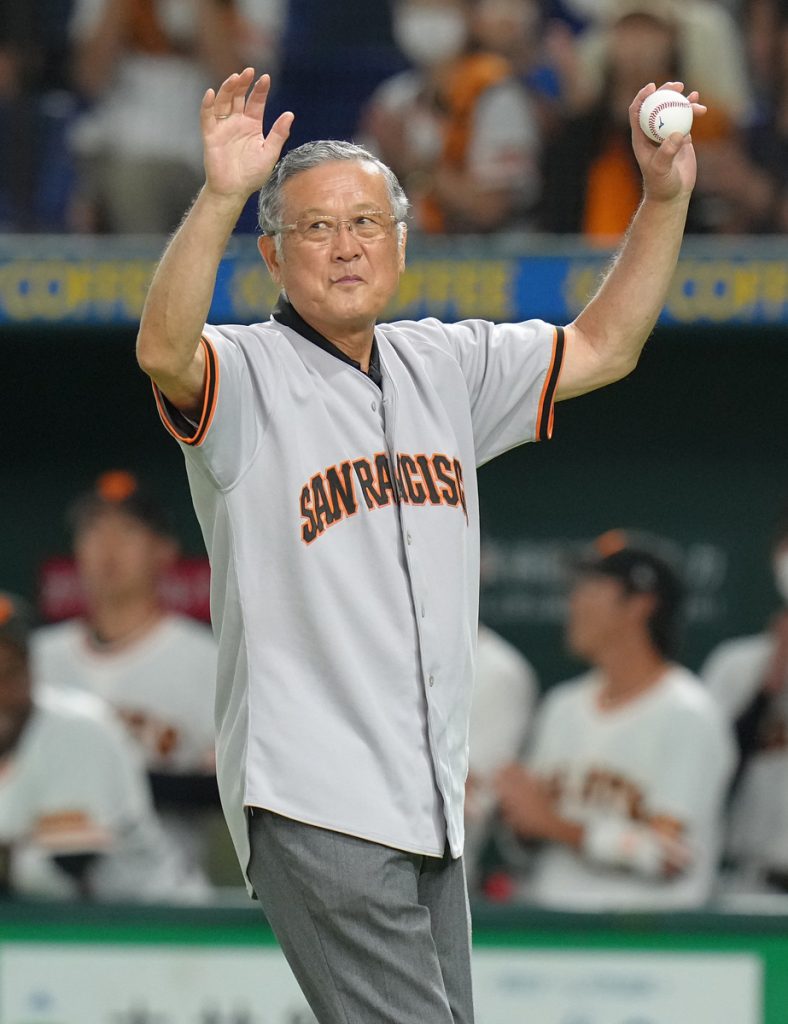
Meeting Screwball Master Hubbell
While with the San Francisco Giants organization in 1964 and '65, Murakami became acquainted with former Giants great Carl Hubbell, the franchise's farm director. Hubbell was a renowned screwball pitcher in his playing days, specializing in the throwing of a reverse curve that baffled hitters.
They shared a bond: a dedication to the screwball.
"He was a very good screwball pitcher," Murakami told the FCCJ, describing Hall of Famer Hubbell, a 253-game winner and a nine-time All-Star. "In Japan, this pitch, even if it was thrown by a right-handed pitcher or a left-handed pitcher, it's called shuuto. But a left-handed pitcher's pitch should be called a screwball ― that was something I heard from Carl. And the name of the pitch came from the ships' or boats' screw, so you actually rotate the baseball like a screw on the ship and use that rotation to make very good (movement) on the pitch."
On his first attempt throwing a screwball in a high school game, Murakami pegged a batter in the head with the pitch. From the stands, he heard adults shout out, "You killer," or similar words, he recalled, thinking they were the player's parents.
But Murakami didn't abandon the pitch. The screwball was a vital part of his pitching arsenal over the years, an essential part of his successful career. In NPB, he won 103 games, including a spectacular 18-4 season in 1968 with the Hawks.
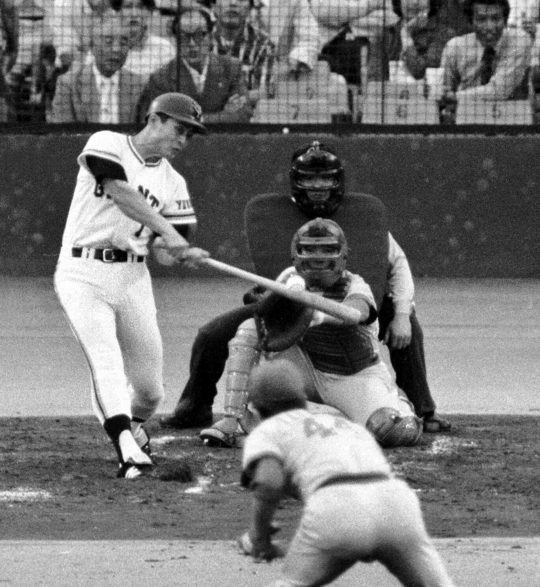
The Era Between Murakami and Nomo
In the wide-ranging talk at the FCCJ, Murakami was asked if he felt it was regrettable that NPB's top Japanese players weren't able to play in MLB for decades following his return. (Quick reminder: no formal relations existed between the two baseball leagues.)
Asked if he would've liked to have seen Sadaharu Oh and Shigeo Nagashima in the major leagues, Murakami responded by saying, "I believe those players in the past who were at the top of the Japanese league would probably do very well in the States."
He added, "Back then we had so many great pitchers like [Masaichi] Kaneda, [Shigeru] Sugishita, [Kazuhisa] Inao, [Tetsuya] Yoneda, [Masaaki] Koyama, all those great guys, all those 300-game winners. And I heard that Sugishita-san had a real good chance of playing in Major League Baseball. But back then, in Japanese thought, Major League Baseball was literally something 'out of the league.' "
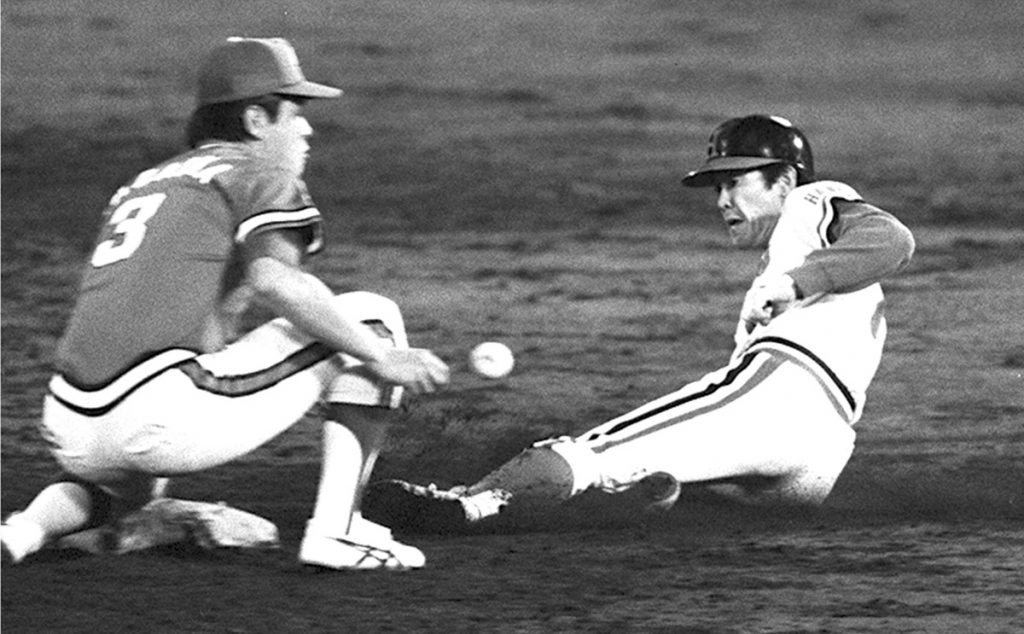
Later in his detailed response, Murakami pointed out that Oh, Nagashima and Katsuya Nomura were "great hitters." He insisted that "even the speedster [Yutaka] Fukumoto, like you are seeing with Shohei Ohtani stealing so many bases now in Major League Baseball," would have had success there.
Murakami predicted that Fukumoto, NPB's all-time leader in stolen bases (1,065) in a career spanning from 1969-88, would likely still be able to steal 100 bases in an MLB season nowadays. Even with runners on base, many MLB pitchers have big deliveries to the plate in the modern game, Murakami observed.
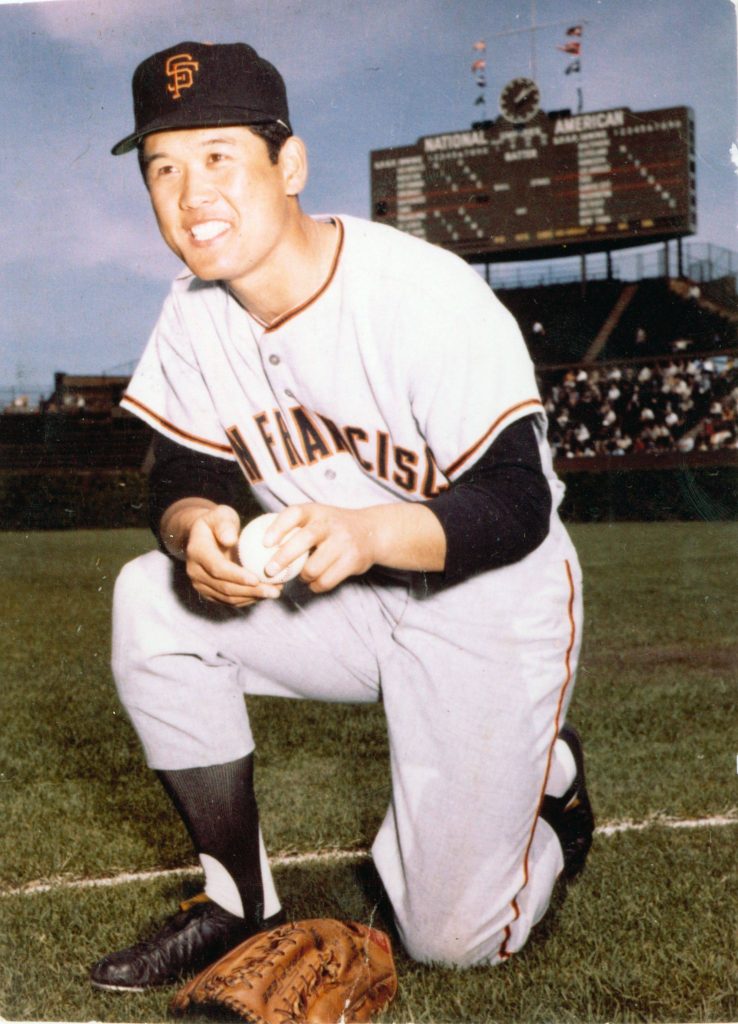
From the California League to MLB
From the 1960s to the present, Murakami has insightful stories and opinions on pro baseball.
This includes memories of his MLB debut on September 1, 1964, with the Giants. Heading into the bottom of the eighth, the Mets led 4-0 when Murakami was summoned to pitch.
"The PA announcer called my name: 'Now pitching for the San Francisco Giants, number 10, Masanori Murakami,' and I went through the door right by the left-field pole," he recalled.
Days earlier, he had pitched at a California League ballpark with a capacity for around 1,000 spectators. Shea Stadium's attendance that night was reported as 39,379.
"I didn't want to let myself down by being so nervous about it, so I started singing Sukiyaki, which was a hit song from Japan back at that time," Murakami, who later became the founding board member of Special Olympics Japan, told the FCCJ crowd. "And I went over to the mound, and I threw the very first pitch of my (MLB) career: a low, outside pitch that hit the corner for a strike."
Singing a song and pitching a strike calmed his nerves, and the rest is history.
RELATED:
Author: Ed Odeven
Follow Ed's [Japan Sports Notebook] on Sundays, [Odds and Evens] during the week, and he can be found on X (formerly Twitter) @ed_odeven.







